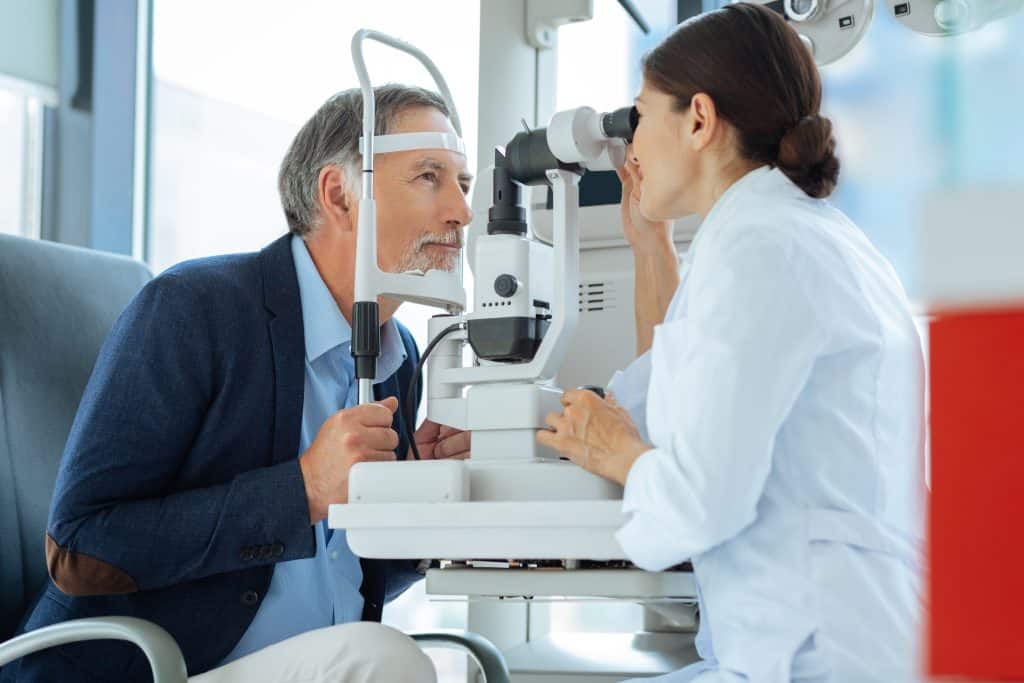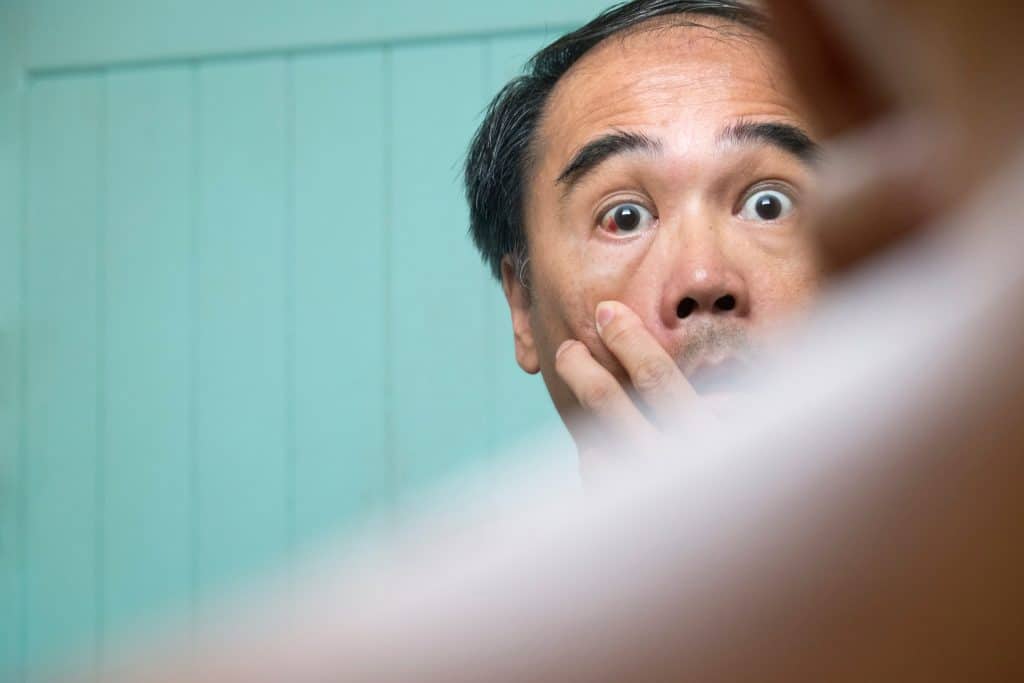Your eyes are often called the windows to your soul, but they’re also your windows to the world. When something goes awry with your vision, it can be more than just an inconvenience; it can be a sign of a serious medical issue. Early detection of eye symptoms can make a significant difference in treatment outcomes and can even save your sight. This article explores some of the most severe eye symptoms that should never be ignored. From sudden to gradual vision loss, from eye pain to physical changes, you’ll find a comprehensive guide to understanding when it’s time to consult a medical professional.
Contents
The Importance Of Regular Eye Check-Ups

Routine eye examinations are not just for those who wear glasses or contact lenses; they are crucial for everyone. A comprehensive eye exam can detect a range of issues, from refractive errors like nearsightedness to serious conditions like glaucoma or diabetic retinopathy. Early detection often leads to more effective treatment, which can prevent vision loss or the progression of eye diseases.
According to the Centers for Disease Control and Prevention, approximately 12 million Americans have vision impairment, and 1 million are blind. With these staggering numbers, the importance of regular eye check-ups cannot be overstated. Between these check-ups, however, it’s essential to be aware of any symptoms that could indicate a problem. Knowing what to look out for could be a lifesaver for your vision.
Sudden Loss Of Vision

Experiencing a sudden loss of vision can be terrifying. Whether it’s like a curtain being drawn over your eyes or a sudden blackout, immediate medical attention is crucial. Conditions such as retinal detachment or a stroke affecting the visual pathways in the brain could be the culprits. The quicker you act, the better your chances are for restoring vision and preventing permanent damage.
However, not all instances of sudden vision loss are due to life-threatening conditions. Some may be caused by a temporary spasm in the eye’s blood vessels or even a migraine. Regardless of the cause, any sudden loss of vision should be treated as a medical emergency. The next symptom to be aware of is not as immediate but can be equally concerning: gradual loss of vision.
Gradual Loss Of Vision

Unlike sudden vision loss, a gradual decline in your vision can be subtle and easy to ignore. You might think it’s just a normal part of aging or due to fatigue. However, conditions like glaucoma or macular degeneration often start with a slow loss of peripheral or central vision. By the time you notice significant vision loss, the condition may have already progressed to an advanced stage.
Early detection is key when it comes to treating gradual vision loss effectively. Regular eye check-ups can catch these conditions in their early stages, but it’s also crucial to be aware of any changes between appointments. If you notice that your vision is not as sharp as it used to be, or if you’re struggling to see objects clearly at a distance, don’t wait for your next scheduled eye exam—seek medical advice immediately.
Eye Pain And Discomfort

When you experience eye pain or discomfort, it’s more than just an annoyance; it could be a sign of an underlying issue that requires immediate attention. Conditions like corneal abrasion, optic neuritis, or even glaucoma can manifest as eye pain. The nature of the pain—whether it’s a stabbing, burning, or throbbing sensation—can also provide clues to its cause. If you experience persistent or severe eye pain, it’s crucial to consult a healthcare provider for an accurate diagnosis and appropriate treatment.
Ignoring eye pain can lead to complications and may exacerbate the underlying condition. For instance, untreated corneal abrasions can lead to infections, while ignoring the symptoms of optic neuritis could result in permanent vision loss. It’s essential to listen to what your body is telling you and seek medical help when you experience discomfort or pain in your eyes.
Floaters, Flashes, And Halos

Visual disturbances like floaters, flashes, and halos around lights may seem harmless, but they could be indicative of serious eye conditions. Floaters are small specks that drift across your field of vision, while flashes appear as lightning streaks. Halos are bright circles that appear around lights. These symptoms can be signs of a retinal tear, migraine, or even the onset of cataracts.
While it’s common to experience these symptoms occasionally, a sudden increase in floaters or flashes or the onset of halos should not be ignored. A retinal tear can lead to retinal detachment, which is a medical emergency that can result in permanent vision loss. Similarly, frequent episodes of migraines with visual disturbances can affect your quality of life. If you experience any of these symptoms, consult a healthcare provider for a thorough evaluation.
Physical Changes In The Eye

Physical changes in the eye, such as redness, puffiness, or a yellowish tint, can be alarming. While some of these symptoms may be due to benign causes like allergies or lack of sleep, they can also indicate more serious conditions. Red eyes could be a sign of conjunctivitis, while a yellow tint may indicate jaundice, which could be related to liver issues. If you notice any physical changes in your eyes, it’s essential to get them checked out.
Don’t dismiss these physical changes as mere cosmetic issues. For example, persistent redness could be a sign of uveitis, an inflammation that can lead to vision loss if not treated promptly. Similarly, jaundice could be a symptom of a serious liver condition that requires immediate medical attention.
Difficulty Seeing At Night

Struggling to see clearly in low-light conditions is not just an inconvenience; it could be a symptom of an underlying eye condition. Difficulty in night vision can be due to a variety of causes, ranging from Vitamin A deficiency to more serious conditions like retinitis pigmentosa. This symptom can severely impact your ability to carry out daily activities, such as driving at night, and can compromise your safety.
If you find yourself squinting or straining to see in dim light, or if you’re experiencing a loss of contrast sensitivity, it’s time to consult a healthcare provider. Conditions like retinitis pigmentosa can progress to complete vision loss, and early detection is crucial for effective management. Don’t wait for your next eye check-up if you’re experiencing difficulty with night vision; seek medical advice as soon as possible.
Sensitivity To Light

Experiencing sensitivity to light, also known as photophobia, can be more than just a temporary discomfort. It can be a symptom of various underlying conditions, such as migraines, corneal abrasion, or even meningitis. The severity can range from mild irritation to extreme discomfort, making it challenging to keep your eyes open in bright or even normal lighting conditions. If you find yourself frequently squinting or closing your eyes in bright light, it’s crucial to consult a healthcare provider for a proper diagnosis.
Ignoring light sensitivity can lead to complications and a reduced quality of life. For instance, if it’s due to a corneal abrasion, leaving it untreated can result in an infection. On the other hand, if it’s a symptom of a neurological condition like meningitis, immediate medical intervention is crucial. Therefore, a healthcare provider should evaluate any persistent or severe sensitivity to light to determine the underlying cause and initiate appropriate treatment.
Don’t Turn A Blind Eye To These Symptoms
Your eyes are not just sensory organs; they are an integral part of your overall health and well-being. Ignoring serious eye symptoms can lead to irreversible damage and even permanent vision loss. Early detection and prompt medical intervention are key to preserving your sight and maintaining your quality of life. So, the next time you experience any of the symptoms discussed in this article, don’t hesitate to seek professional medical advice. Your eyes are too important to neglect.


